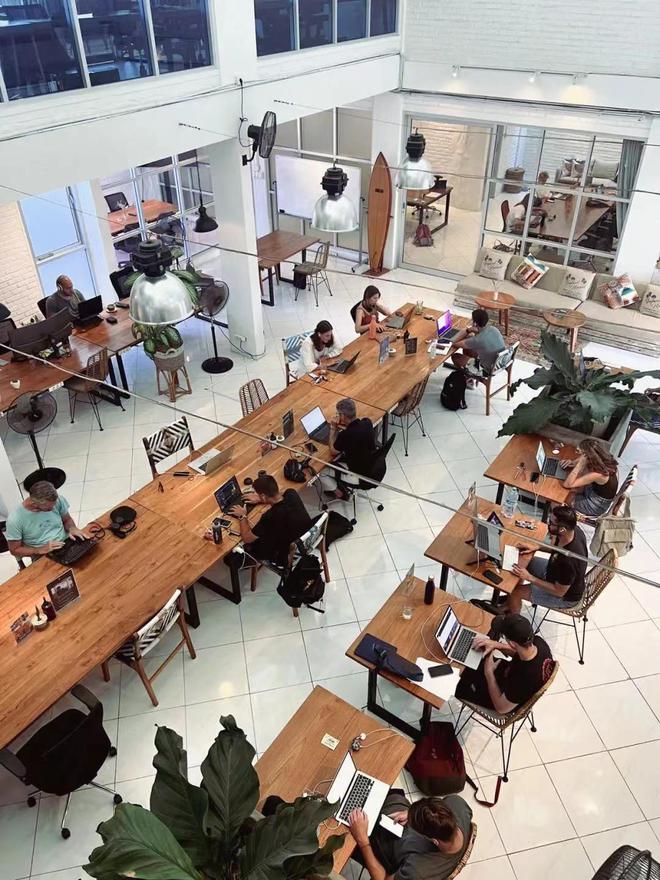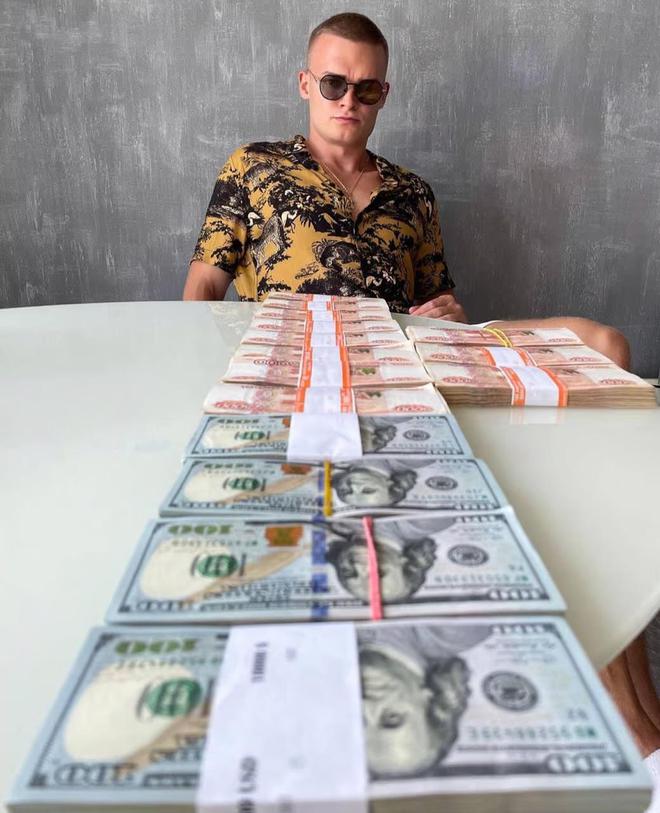Behind beaches, Bitcoin, and digital nomads: Why has Southeast Asia become a hot spot for Web 3.0?
When the scorching sea breeze lifts a corner of the night in Southeast Asia, the wave of digital nomads rushing into this carnival holy land is still surging. These "backpackers" choose to pack their work into small bags and live in a virtual Web3
When the scorching sea breeze lifts a corner of the night in Southeast Asia, the wave of digital nomads rushing into this carnival holy land is still surging. These "backpackers" choose to pack their work into small bags and live in a virtual Web3.0 world. This is a side of Southeast Asia that people may not be familiar with.
Recently, a Chinese citizen murder case occurred in Bali, Indonesia, bringing the virtual currency craze in Southeast Asia to the forefront of people's attention. Although the relationship between the deceased and the coin circle has not been confirmed by authoritative information, Southeast Asia has indeed become a hot spot for Web3.0 entrepreneurs, practitioners, and investors. Various signs indicate that this region is a destination for cryptocurrency entrepreneurs and investors seeking high growth startups. For example, in 2022, Gemini, a cryptocurrency exchange headquartered in New York, announced its participation in the Southeast Asian Web3.0 development plan. Coinbase, a trading platform headquartered in San Francisco, plans to recruit employees in Southeast Asia as an important step in its global expansion strategy.
The reason for the popularity of Web3.0 in Southeast Asia is that they have truly created a series of job opportunities, "Liu Yisi, the chief technology officer of MaskNetWork, which builds the Web3.0 application ecosystem, told Pengpai Technology (www.thepaper. cn). In his eyes, Thailand and Vietnam are two countries with better development, while Indonesia, especially Bali, attracts practitioners because of the convenience of visas, but there is still a gap between Indonesia and other countries in infrastructure construction.

Digital vagrants working in Bali.
Web3.0 provides banking services and job opportunities
One of the reasons for the popularity of Web3.0 in Southeast Asia may be the lack of banking business, "Wu Xiao, founder of Pure White Matrix, said in an interview with Pengpai Technology, Although in places like China, Europe, and the United States, where financial services are well-developed and it is common for us to visit banks, there are many areas of uneven development where people find it difficult to open a bank account. People in Southeast Asia may not have an account or a bank account, but with Web3.0, they can withdraw and deposit money anytime and anywhere
According to a report released by consulting firm Bain in 2019, approximately 70% of users in Southeast Asia do not have a bank account. The company stated that although Southeast Asia has made significant progress in the financial sector over the past decade, particularly in embracing more diverse development methods, it still cannot escape the common problem faced by developing countries - the contradiction between the large population size and limited banking service opportunities.
The lack of formal banking services provides space for the development of cryptocurrencies. Decentralized finance (DeFi) is booming in the region. Its distributed ledger technology allows users to directly obtain income and funds without going through cumbersome financial intermediary procedures. Chainalysis, a blockchain data tracking company, found that in terms of DeFi usage, Vietnam and Thailand were second only to the United States in 2021.
The second reason is that, represented by blockchain games, Web3.0 has created a large number of job opportunities in Southeast Asia. Liu Yisi stated that the most famous project in Southeast Asia is "AxieInfinity", created by Vietnamese startup SkyMavis and a decentralized game on the Ethereum blockchain.
In the game, players can purchase their own pets (Axies). This pet itself has NFT (Non Homogeneous Token) attributes and can be used for trading and collection. However, compared to early NFT products such as encrypted cats, these pets can also be used for cultivation and combat. Therefore, pets are both assets and can receive combat rewards. They can also be upgraded, increased in value, and traded on the chain. Like the real world, pets can breed. This type of application can provide people with more job and money opportunities through Web3.0.
According to data from market analysis platform NonFungible, in 2021, "Fantasy Creatures" took over half of the market share of blockchain games on their own, with daily active users (DAUs) exceeding 2 million. It is reported that during the epidemic, many countries in Southeast Asia had high unemployment rates. Against this backdrop, "fantasy creatures" have become an important means for many unemployed people, especially those with low educational backgrounds, to obtain income, and have also attracted many digital vagrants to come to work.

The most famous Web3.0 blockchain game in Southeast Asia, AxieInfinity.
Countries are showing a diversified development trend
The Web3.0 ecosystem has been fully expanded in Southeast Asia. Every country in the region has its own advantages and characteristics. Vietnam is currently famous for blockchain games, while some industry insiders said that Singapore has greater "ambition" and has joined the battle with Hong Kong, China's "Global Web3.0 Center". The Monetary Authority of Singapore (MAS) is the unit leading its development, We have long held a relatively open and friendly stance towards the development of blockchain and cryptocurrencies.
As early as 2017, the Monetary Authority of Singapore issued the Cryptocurrency Issuance Guide, which established the basic position and policy of the Singapore government on ICO (initial token issuance), and established the application of its Securities and Futures Act to the issuers and related platforms that raised funds through ICO. In January 2021, the Payment Service Act (PSA) was introduced to regulate all cryptocurrency, exchange, and digital payment businesses in Singapore. On May 5, 2022, Singapore's Deputy Prime Minister, Wang Ruijie, explicitly stated his intention to build Singapore into a "decentralized financial center".
Liu Yisi believes that besides Singapore, Thailand and Vietnam should be the two countries with the best development of Web3.0 in Southeast Asia. Vietnam has benefited from the extremely high local internet penetration rate, coupled with the government and various universities' emphasis on computer and blockchain education, resulting in the emergence of many excellent young engineers and the development of many well-known domestic and international projects. Although Thailand's policies are not so friendly, and blockchain is still heavily taxed at the national level, it has also developed a large number of domestic developers and participants. More importantly, due to the The convenient visa policy has led to the emergence of a large number of overseas developers, practitioners, or Web3.0 digital nomads in Bangkok, Chiang Mai, and Phuket, making the development of Web3.0 in Thailand extremely promising
Liu Yisi pointed out that Bali has also attracted many overseas practitioners due to the convenience of visas and a relatively good environment. "However, due to the poor infrastructure in the local area, the potential as a Web3.0 center is still much lower compared to the other two countries," he said
An industry insider pointed out that Thailand is the second Southeast Asian country, after Singapore, to actively embrace virtual currency and blockchain. Although the overall industry is still in its early stages of development, Thailand's overall Web3.0 development speed is very fast. In June 2021, FlashExpress, the e-commerce logistics supplier who completed the E-round financing, will officially become the first unicorn in Thailand. Now, more mature and advanced Web3.0 applications can be seen, such as BandProtocol, which develops cross chain data oracle machine, GuildFi, and NFT applications such as Knowhere.art.
Behind liberal policies lies the danger
Compared to countries such as China, the United States, the United Kingdom, and Japan that have tightened their regulatory policies on cryptocurrencies, Southeast Asian countries are favored or benefit from a relaxed regulatory environment. But just last year, Cambodia and Thailand successively issued statements prohibiting cryptocurrency transactions. The Monetary Authority of Singapore said that digital payment tokens or cryptocurrencies should not be promoted to the public because of their high transaction risk.
Compared to other countries, Indonesia is relatively open to cryptocurrencies.
During the epidemic, in order to attract foreign tourists to stay, the Indonesian government announced a policy in 2021- foreign digital nomads with a certain source of income will receive a 5-year digital nomad visa and do not need to pay taxes in Indonesia. Compared to other countries that offer digital vagrant visas, Indonesia's digital vagrant visa has the longest validity period to date.
Since September 2018, the Indonesian government has successively enacted a series of relevant laws, including cryptocurrencies and assets that have legal status in the country and can be traded as commodities. The Futures Exchange Supervisory Board (BAPPEBTI) is the main regulatory unit, and the exchange needs to obtain a legal license to legally trade a total of 229 types of cryptocurrencies. Various unique conditions have enabled Indonesia to develop rapidly in the fields of exchanges, wallets, asset management, and other DeFi.
For example, Indodex, established in 2014, is a leading exchange in Indonesia with over 4.7 million users. According to statistics from the Ministry of Trade in Indonesia, over 6.5 million people had traded in cryptocurrencies in the first five months of 2021, far exceeding the 2.2 million who traded in stocks. The transaction volume of cryptocurrency has increased from $4.4 billion in 2020 to $25 billion in the first five months of 2021, with a growth rate of 470%. Cryptocurrency has become the most popular investment category among the Indonesian people.
The feeling conveyed by Bali is' freedom '. On social media platforms, a large number of digital nomads can be seen sharing their daily work on this tropical island, which often includes elements such as beautiful beaches, relaxed attitudes and expressions. Many netizens also express their desire to become digital nomads in Bali.

Cryptocurrency investor and blogger Yuri Boizov claimed to have been robbed by Bitcoin in Bali.
But in the pursuit of freedom, there are also hidden dangers. In March of this year, an investor and blogger named Yuri Boytsov posted on social media that he had been "robbed by Bitcoin" in Bali. Four attackers broke into his residence, demanding the use of his cryptocurrency wallet for transfers, and also intimidated and assaulted him and his girlfriend.
A digital nomad living in Bali has also stated that in Bali, people often talk about how they rely on cryptocurrency to make money. "I used to know an Indian man who claimed to make money through Bitcoin. When we first met, he was very flashy and boasted about his special wealth." Showing off and discussing cryptocurrency seems to be ubiquitous in Bali.
Tag: Behind beaches Bitcoin and digital nomads Why has Southeast
Disclaimer: The content of this article is sourced from the internet. The copyright of the text, images, and other materials belongs to the original author. The platform reprints the materials for the purpose of conveying more information. The content of the article is for reference and learning only, and should not be used for commercial purposes. If it infringes on your legitimate rights and interests, please contact us promptly and we will handle it as soon as possible! We respect copyright and are committed to protecting it. Thank you for sharing.


